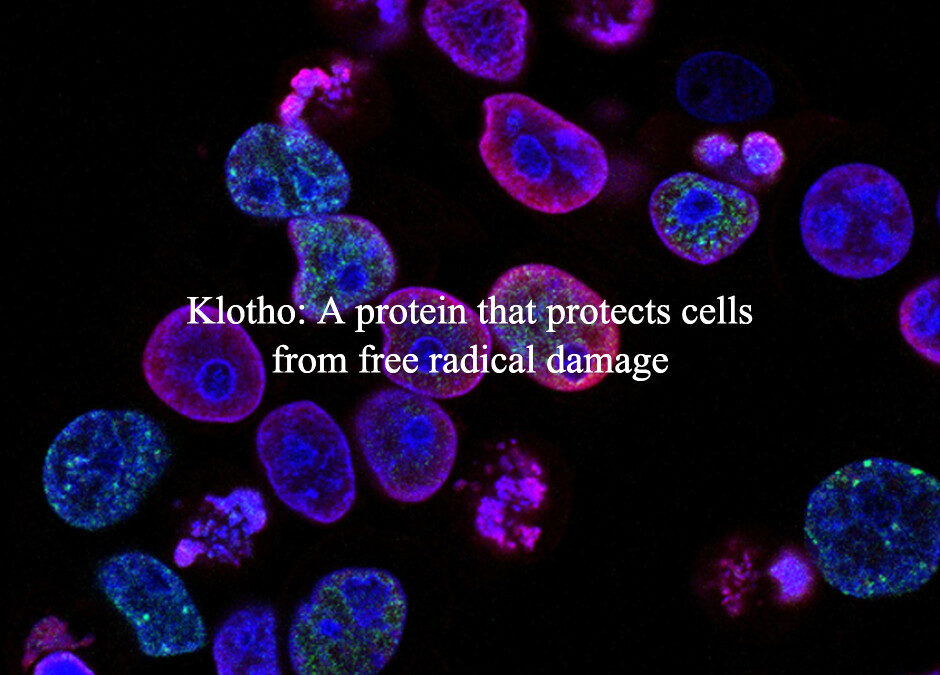Klotho is a protein that is produced by cells in the body. It has been shown to have a number of important functions, including protecting cells from damage caused by free radicals. Free radicals are unstable molecules that can damage DNA and other cellular components. Klotho can help to neutralize free radicals, which may help to protect cells from aging and disease.
There are a number of ways in which Klotho can protect cells from free radical damage. First, Klotho can help to scavenge free radicals. This means that it can bind to free radicals and neutralize them before they can damage cells. Second, Klotho can help to increase the production of antioxidants. Antioxidants are molecules that can help to protect cells from damage by free radicals. Third, Klotho can help to repair damage that has already been caused by free radicals.
*The research on Klotho and its role in protecting cells from free radical damage is still in its early stages. However, the findings to date suggest that this protein may have a significant impact on the aging process and the development of age-related diseases.
How does Klotho protect cells from free radicals?
Klotho can protect cells from free radicals in a number of ways. First, Klotho can bind to free radicals and neutralize them. This prevents the free radicals from damaging cells. Second, Klotho can increase the production of antioxidants. Antioxidants are molecules that can help to protect cells from damage by free radicals. Third, Klotho can help to repair damage that has already been caused by free radicals.
How can I increase my levels of Klotho?
There are a number of things you can do to increase your levels of Klotho. First, you can eat a healthy diet. A diet that is rich in fruits, vegetables, and whole grains is likely to be high in Klotho. Second, you can exercise regularly. Exercise has been shown to increase the levels of Klotho in the body. Third, you can avoid smoking and excessive alcohol consumption. Smoking and excessive alcohol consumption can damage the body’s ability to produce Klotho.
Can Klotho be used to treat age-related diseases?
The research on Klotho and its potential to treat age-related diseases is still in its early stages. However, the findings to date suggest that this protein may have a significant impact on the development of age-related diseases. For example, Klotho has been shown to protect against the development of Alzheimer’s disease, heart disease, and cancer. More research is needed to confirm these findings and to develop Klotho-based therapies that can be used to treat age-related diseases.
In Conclusion
Klotho is a protein that has a number of important functions, including protecting cells from damage caused by free radicals. Free radicals are unstable molecules that can damage DNA and other cellular components. Klotho can help to neutralize free radicals, which may help to protect cells from aging and disease. The research on Klotho and its role in protecting cells from free radical damage is still in its early stages. However, the findings to date suggest that this protein may have a significant impact on the aging process and the development of age-related diseases.
*Article revision to provide better information from Jorge A. Genovese M.D., Ph.D.
Klotho’s antioxidant protective effects have been described long before (see citation below), and many articles have been written about them. By saying Klotho is in the early stages of research, we may create the impression we are talking about something very preliminary.

